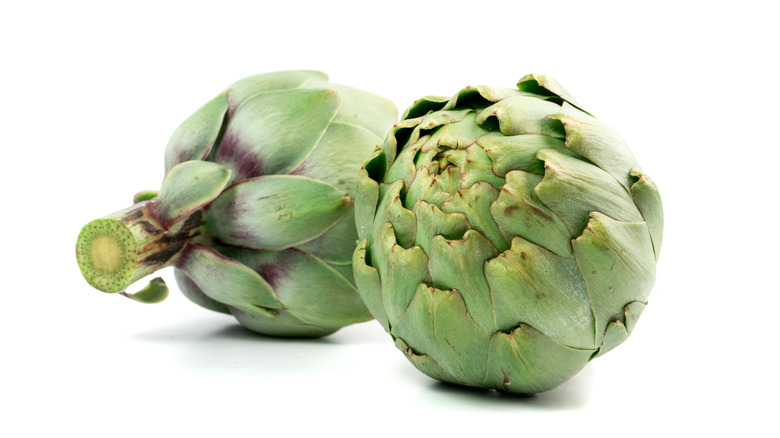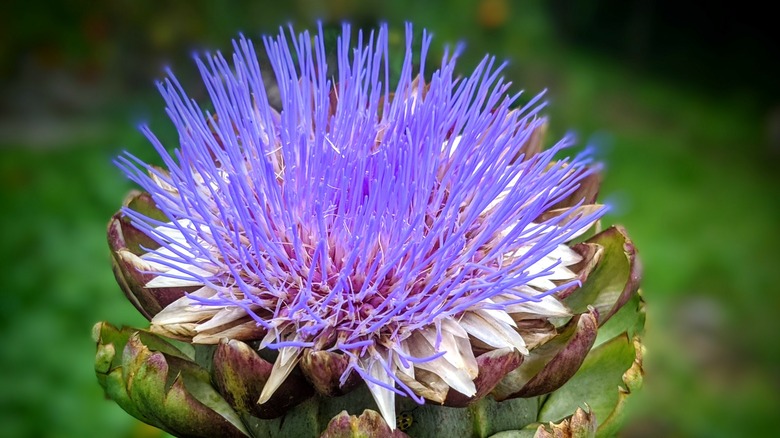The Greek Myth Behind The Origin Of Artichokes
The artichoke is a legendary vegetable, and not just because of its tastiness and health benefits. The plant has long been seen as somewhat otherworldly. According to Fine Dining Lovers, ancient Egyptians viewed the artichokes as a symbol of both fertility and sacrifice. They were not the only classical civilization to view them as something almost spiritual. The ancient Greeks did too, and per National Geographic, both artichokes and their natural ancestor, the cardoon, were often found on their tables. It's not surprising, given that artichokes are native to the Mediterranean basin, near where both of those bronze age cultures sat.
It also shouldn't be too surprising that the ancient Greeks had a myth concerning the artichoke. After all, they spun yarns about all sorts of food. According to Taverna, mythical gods and heroes were known to consume food (especially fruit) and drink that was hallucinogenic, restorative, and most importantly, sweet. Ambrosia, the drink of the heavens, inspired the modern-day ambrosia salad. Dionysus, the god of wine and drunkenness, also loved figs. The lotus was said to make eaters blissfully ignorant. Meanwhile, there were golden apples that made those who ate them live forever. Even mint has a Greek origin story told about them. And, of course, we have the mythical artichoke.
Zeus loved an artichoke
As told by Fine Dining Lovers, there was once a beautiful nymph who had ash blonde hair and eyes of green and violet named Cynara. Zeus was visiting his brother Poseidon when he saw gorgeous Cynara bathing upon the sandy shore — or so, National Geographic reports, the legend goes. Cynara was said to live on the Aegean island of Zinari, and it was there the father of the gods became so enamored with the nymph he brought her to Mount Olympus and made her a goddess and his mistress (via Foodamo). Missing her mother, Cynara snuck out to visit her on Earth, enraging Zeus. As punishment for leaving, Cynara was transformed the god-king into an artichoke and then tossed to the ground.
Perhaps the spikiness of Cynara's new vegetal form was chosen to make sure no one but Zeus would dare get close to her tender heart; Foodamo notes the plant's purple blossom matched Cynara's own beauty, so it might also have been a credit to her beauty. Whatever the reason, artichokes' scientific name (Cynara cardunculus) honors Cynara's sad fate. The Greeks considered the spiny plant an aphrodisiac, likely due to the sensuality Zeus saw in Cynara. We certainly can't make any claims about artichokes having any such powers, but artichokes do undeniably possess some fascinating lore.

